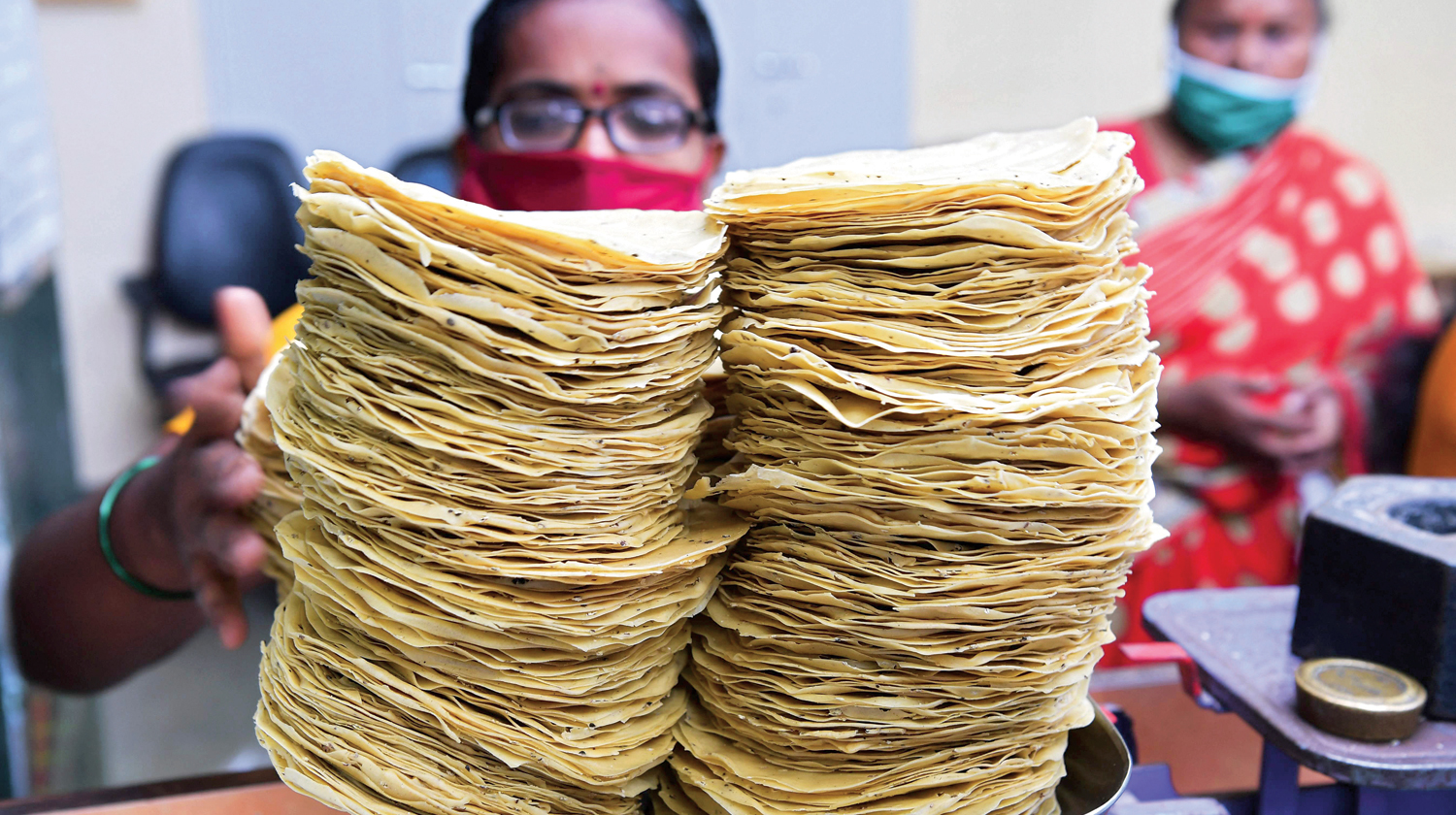

MUMBAI: The fairytale success of Lijjat Papad — a multi-million-dollar venture founded by seven women in a crowded Mumbai tenement in 1959 with seed capital of 80 rupees ($1.10) — belies its revolutionary feminist aspirations.
The cooperative employs 45,000 women across India, offering them a job for life as “co-owners” of the enterprise, whose wafer-thin snacks — known locally as papads and as papadums in the West — have become a byword for good business and female empowerment in a patriarchal country.
Life at Lijjat’s 82 branches begins early, with women lining up before dawn to drop off finished products, pick up freshly prepared lentil dough, and head home.
That’s when the work shifts into high gear, as they deftly stretch and roll out the dough — flecked with cumin seeds and black pepper — into small flat rounds that are then left to dry.
The job relies on skill but doesn’t require formal education, opening up opportunities for multitudes of Indian women to become financially independent.
That is a huge accomplishment in a country where female workforce participation — never high to begin with — has been declining for years, plunging from 34 to 20 per cent in the two decades to 2019, according to the International Labour Organization.
As a young bride aged 24, Darshana Pundalik Parab fretted about managing household expenses with her husband’s meagre salary, realising that her employment prospects as a school dropout were dire.
Then she heard about Lijjat. Not only did the cooperative have a job for her, it allowed thousands of housewives like her to work from home, no questions asked.
In the 35 years that followed, Parab was able to keep earning while raising three boys.
“It was difficult when the kids were small, to watch over them and do the job,” said Parab, recounting the early years when she kept one eye on her sons, and the other on the papads. — AFP
Oman Observer is now on the WhatsApp channel. Click here



